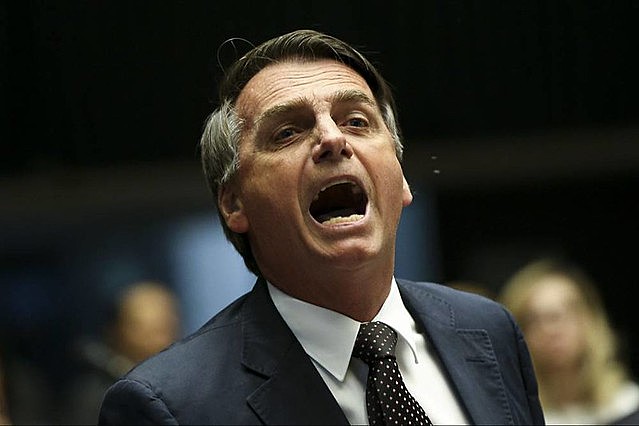Supporters of the president of Brazil, Jair Bolsonaro, are organizing pro-government demonstrations on Sunday, May 26, less than two weeks after the massive protests against the education budget cuts and calls for a general strike against the far-right administration scheduled for Jun. 14.
The primary targets of the pro-Bolsonaro demonstrators are the Brazilian Supreme Court and the Congress, as protesters call for intervention and claim the institutions are stopping the president from implementing his projects.
Activists from two major right-wing movements, Vem Pra Rua and the Free Brazil Movement, argue that hard-line Bolsonarists are the ones calling the protests, namely the polemicist and the president’s ideological mentor, Olavo de Carvalho, and Rio de Janeiro councilman Carlos Bolsonaro, the president’s son.
But the demonstrations are causing a crack-up on the Brazilian right and brought a matter of concern to organizers: a possible low turnout on Sunday.
With this potential problem in mind, the movements that are calling for the demonstrations are expanding their list of demands and are now calling lawmakers to pass the pension reform, the so-called administration reform, and the anti-crime bill pushed by the Justice Ministry.
Lincoln Secco, a professor at the History Department of the University of São Paulo and an expert in social movements, says there is reason to believe the demonstrations will, in fact, attract a low turnout, as major mainstream media outlets are not straightforwardly expressing support to them, especially the Globo Network, which supported previous right-wing protests in the country.
While organizers having been increasing their efforts to include more demands, the event on Facebook calling for the rally in São Paulo had only 1,600 RSVPs choosing “going” on Thursday morning.
As the potential low turnout could further expose a government that has been facing troubles to pass measures and falling popularity less than six month since Bolsonaro took office, there has been a crack-up between Bolsonarist sectors and groups inside the government.
The president’s Social Liberal Party (PSL) allowed its members to individually decide whether to join the demonstrations, but it will not officially support them. The party chair, Luciano Bivar, actually criticized the mobilization.
“We were democratically, institutionally elected. There is no ethical crisis, no moral crisis, the issues with the reforms are being solved, so I don’t see the point of the protests.”
Janaina Paschoal, the most voted-for state representative in Brazil’s history, threatened to leave the PSL because “the demonstrations are not reasonable.”
No allied party announced support for the rallies, a move that also put the president in a tight spot.
On Monday, May 20, the Military Club, which gathers armed forces agents, released a statement calling its 60,000 members to take to the streets “to support the government to implement the necessary reforms to be able to rule the country.”
However, General Santos Cruz, a secretary in the Bolsonary administration, told the newspaper Folha de S. Paulo, that “this is not the best time for demonstrations.”
The majority of the Brazilian business industry is also not joining the mobilization, except for Luciano Hang, the owner of a department store chain who became notorious for his outlandish style and alleged financial contributions to illegal bulk messaging services to spread fake news during last year’s elections.
Another major group that is usually supportive of the government, the truckers are also facing conflicting opinions within their organizations. While some leaders are spreading messages to WhatsApp groups calling truck drivers to join the rallies and support the government, Brazil’s National Confederation of Workers in Transports and Logistics, which represents more than 700,000 truckers, said it will not take part in the pro-Bolsonaro protests.




